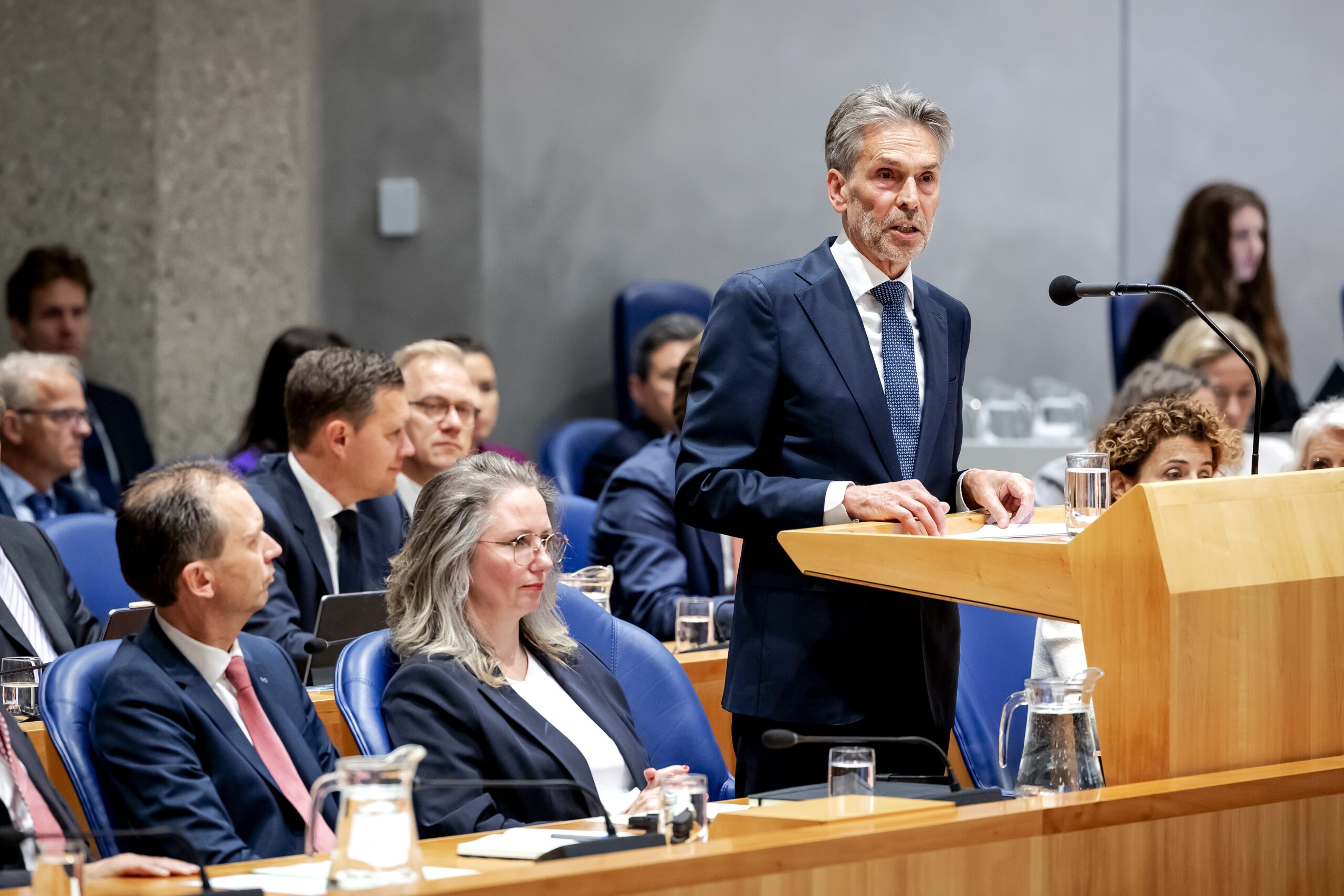Schoof says migration is top priority, pledges to protect rights

Prime minister Dick Schoof has told MPs that controlling migration will be the new Dutch government’s number one priority in his first debate since taking office.
The former head of the intelligence service said voters had given a “crystal clear message” to politicians that they wanted to see the social impact of immigration tackled. “Whichever way you look at it it, this is the issue that leaps out,” he said.
“Put yourself in the position of someone living in Ter Apel or Budel [the first points of arrival for refugees], or a student with no chance of getting a room, or someone surrounded by premises where labour migrants are housed in the most degrading conditions,” he said.
Schoof said the government would spend the summer drawing up detailed plans on issues such as housing, healthcare and the cost of living. He said pressure on public services from migration needed to be reduced “so that support remains for genuine refugees”.
He said the Netherlands remained committed to international co-operation and defence, including supporting Ukraine, but the country should not try to be “head of the class” on climate change.
“We will guarantee democratic freedoms and constitutional rights,” he added. “I ask you to judge us on our actions.”
Sifan Hassan
Schoof likened his own position to that of long-distance runner Sifan Hassan, who came to the Netherlands as a refugee from Ethiopia in her teens and has won two Olympic gold medals and two world titles in Dutch colours.
Noting that Hassan overcame nerves to win her debut marathon in London last year, he said: “As a marathon runner, I like to draw on that.”
The debate was dominated by fierce exchanges between Geert Wilders, leader of the far-right PVV party, the largest member of the coalition, and the left-wing opposition block headed by GroenLinks-PvdA leader Frans Timmermans.
Conspiracy theories
Timmermans put down a motion of no confidence in two PVV ministers, asylum minister Marjolein Faber and minister for international trade Reinette Klever, because of their past support for racist “population replacement” theories.
Faber distanced herself explicitly from her use of the term omvolking, which is associated with the Nazi era in Germany, when she was quizzed by MPs prior to her appointment last week, but stood firm on her conviction that immigration had led to a “worrying demographic development”.
Timmermans said the cabinet contained ministers who “spread racist conspiracy theories and attack journalists, judges and academics”, But Wilders hit back, accusing the GL-PvdA leader of dismissing people who were concerned about the changing profile of their neighbourhood as racists.
“Wrong choices”
“You’re not a racist if you say that people sometimes don’t feel at home in their own neighbourhood and their own street and that you need to take those problems seriously,” Wilders said.
Timmermans also said the government was making the “wrong choices” for the future by scaling back its plans on the transition to green energy, agricultural reform and nature restoration.
He claimed that the strict asylum policy proposed by the coalition, which includes seeking an opt-out from European refugee quotas, would lead to conflict with other EU nations and was based on a misguided view of the world.
“We need to realise that our strength lies in diversity and it will always bring challenges,” he said. “Shutting the borders has never been the right answer: it leads to stagnation and decay.”
Thank you for donating to DutchNews.nl.
We could not provide the Dutch News service, and keep it free of charge, without the generous support of our readers. Your donations allow us to report on issues you tell us matter, and provide you with a summary of the most important Dutch news each day.
Make a donation